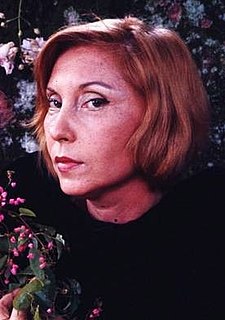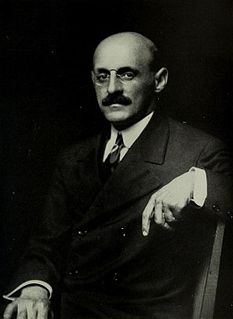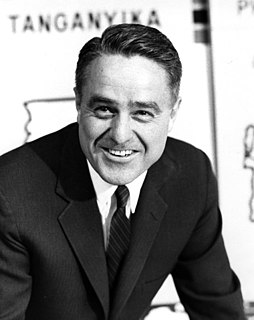A Quote by Friedrich Nietzsche
We have no organ at all for knowledge, for truth: we know (or believe or imagine) precisely as much as may be useful in the interest of the human herd, the species: and even what is here called usefulness is in the end only a belief, something imagined and perhaps precisely that most fatal piece of stupidity by which we shall one day perish.
Related Quotes
It is one of those problems of human nature, which may be noted down, but not solved; - although Ralph felt no remorse at that moment for his conduct towards the innocent, true-hearted girl; although his libertine clients had done precisely what he had expected, precisely what he most wished, and precisely what would tend most to his advantage, still he hated them for doing it, from the very bottom of his soul.
All the talk about the so-called unspeakable horror of early capitalism can be refuted by a single statistic: precisely in these years in which British capitalism developed, precisely in the age called the Industrial Revolution in England, in the years from 1760 to 1830, precisely in those years the population of England doubled.
We have heard of a Society for the Diffusion of Useful Knowledge. It is said that knowledge is power, and the like. Methinks there is equal need of a Society for the Diffusion of Useful Ignorance, what we will call Beautiful Knowledge, a knowledge useful in a higher sense: for what is most of our boasted so-called knowledge but a conceit that we know something, which robs us of the advantage of our actual ignorance? What we call knowledge is often our positive ignorance; ignorance our negative knowledge.
As the biggest library if it is in disorder is not as useful as a small but well-arranged one, so you may accumulate a vast amount of knowledge but it will be of far less value to you than a much smaller amount if you have not thought it over for yourself; because only through ordering what you know by comparing every truth with every other truth can you take complete possession of your knowledge and get it into your power. You can think about only what you know, so you ought to learn something; on the other hand, you can know only what you have thought about.
I believed in belief, for its own shining sake. To believe in the face of utter hopelessness, every article of evidence to the contrary, to ignore apparent catastrophe - what other choice was there? We do it every day, I realized. We are so much stronger than we imagine, and belief is one of the most valiant and long-lived human characteristics. To believe, when all along we humans know that nothing can cure the briefness of this life, that there is no remedy for our basic mortality, that is a form of bravery. To continue believing in yourself, believing in the doctors, believing in thetreatent, believing in whatever I chose to believe in, that was the most important thing.
I knew that was coming. That's another stupidity. The people who use the term don't even know the meaning. They use it to refer to photographs they believe are loosely organized, or casually made, whatever you want to call it. Whatever terms you like. The fact is, when they're talking about snapshots they're talking about the family album picture, which is one of the most precisely made photographs.
It seems to me that the idea of a personal God is an anthropological concept which I cannot take seriously. I feel also not able to imagine some will or goal outside the human sphere. My views are near those of Spinoza: admiration for the beauty of and belief in the logical simplicity of the order which we can grasp humbly and only imperfectly. I believe that we have to content ourselves with our imperfect knowledge and understanding and treat values and moral obligations as a purely human problem-the most important of all human problems.
Knowledge of the truth I may perhaps have attained to; happiness certainly not. What shall I do? Accomplish something in the world, men tell me. Shall I then publish my grief to the world, contribute one more proof for the wretchedness and misery of existence, perhaps discover a new flaw in human life, hitherto unnoticed? I might then reap the rare reward of becoming famous, like the man who discovered the spots on Jupiter. I prefer, however, to keep silent.
Curiosity, which may or may not eventuate in something useful, is probably the most outstanding characteristic of modern thinking ... Institutions of learning should be devoted to the cultivation of curiosity, and the less they are deflected by the consideration of immediacy of application, the more likely they are to contribute not only to human welfare, but to the equally important satisfaction of intellectual interest, which may indeed be said to have become the ruling passion of intellectual life in modern times.
Stupid people like to delude themselves that while they may not be clever, they were at least able to compensate with feelings and insights denied to the intellectual....It was precisely this kind of false belief that made stupid people so stupid. The truth was the clever people had infinitely more resources from which to make the leaps of connection that the world called intuition. What was 'intelligence' after all, but the ability to read into things?
To attain something desired is to discover how vain it is; and…though we live all our lives in expectation of better things, we often at the same time long regretfully for what is past. The present, on the other hand, is regarded as something quite temporary and serving only as the road to our goal. That is why most men discover when they look back on their life that they have the whole time been living ad interim, and are surprised to see that which they let go by so unregarded and unenjoyed was precisely their life, was precisely in expectation of which they lived.
I am a wicked man... But do you know, gentlemen, what was the main point about my wickedness? The whole thing, precisely was, the greatest nastiness precisely lay in my being shamefully conscious every moment, even in moments of the greatest bile, that I was not only not a wicked man but was not even an embittered man, that I was simply frightening sparrows in vain, and pleasing myself with it.







































